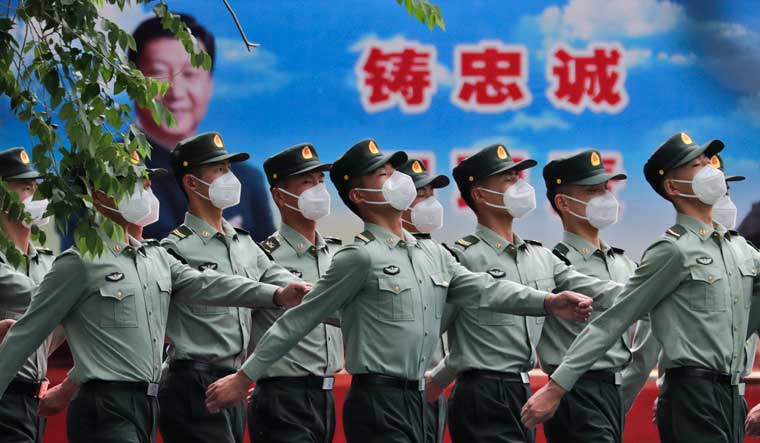In his article 'China and India are super-populations—They have to be super responsible’ published on an online news website, Victor Gao, Professor of Soochow University and Vice President of the Centre for China and Globalisation, has indulged in superficial verbosity and hot air.
He writes, "The two countries need to be more keenly aware of their responsibilities to the world, and stand firmly together in opposing conflicts, and promoting peace and development."
Gao adds that both China and India are ancient civilisations, the two having been the richest in the world for millennia, with both of them later impoverished by colonialism. He states that China and India are the only two countries in the world that have billion-plus populations; with super populations comes super responsibilities.
With respect to Prof Gao, he has stated superficial inanity and blah-blah, revealing his lack of understanding of realities.
As stated in my three articles, 'Modi must guard against China's kiss of death while meeting Xi', 'The Chinese are today's Nazis', and 'Modi has emulated Churchill by criticising Chinese expansionism' published in THE WEEK, to understand politics one must see the economic forces behind it, because politics is concentrated economics.
China may have been socialist at one time, but today it is not. It is imperialist, and with its huge industrial base and $3.1 trillion foreign exchange reserves, it is hungrily seeking markets, raw materials, and avenues for profitable investment, like an imperialist power.
As mentioned in the above articles, there are two kinds of imperialisms, expanding imperialism and defensive imperialism. The former, being aggressive, is much more dangerous than the latter. For example, in the 1930s and early 1940s, Hitler's imperialism was expanding imperialism, whereas British and French imperialism was defensive imperialism. While the latter only wanted to hold on to their colonies, the former wanted to conquer and enslave other countries. So, Hitler's imperialism was the real danger to world peace.
Today, Chinese imperialism is expanding imperialism and is, therefore, the greatest danger to world peace. It has penetrated the economies of Asia, Africa and Latin America, as well as the economies of developed countries. Mountainous areas like Tibet and Ladakh may appear barren but like Siberia, they are full of valuable minerals and other forms of natural wealth, which the Chinese greedily covet as raw materials for their massive, growing industry. This is the real reason for the recent Chinese intrusion across the LAC in Ladakh into the Galwan Valley, Pangong Tso, Demchok, and the Five Fingers.
In the recent talks between the Indian National Security Adviser Ajit Doval and Chinese Foreign Minister Wang Yi, the two sides agreed on disengagement and de-escalation, but this can only be temporary. The Chinese are bound to intrude again into further areas in Ladakh in the future in their insatiable lust for more raw materials for their industries. In fact, that is why they have always refused to delineate the LAC on a map.
One must understand that politics is concentrated economics, and there are certain iron laws of economics which operate independently of any individual's will. It is in the nature of capital that it seeks avenues for profitable investment. The Chinese have built up a massive industrial base and have amassed about $3.1 trillion in foreign exchange reserves, a huge amount of hot money hungrily seeking avenues for investment, markets and raw materials.
In other words, China is a huge, aggressive, expanding imperial power, and independent of the will of its leaders like President Xi or Foreign Minister Wang, it must keep expanding aggressively.
So, all the talk of peace by Prof Gao is empty rhetoric and verbiage. Hitler, too, often spoke of peace while pursuing his path of conquest.
Justice Markandey Katju retired from the Supreme Court in 2011
The opinions expressed in this article are those of the author's and do not purport to reflect the opinions or views of THE WEEK



